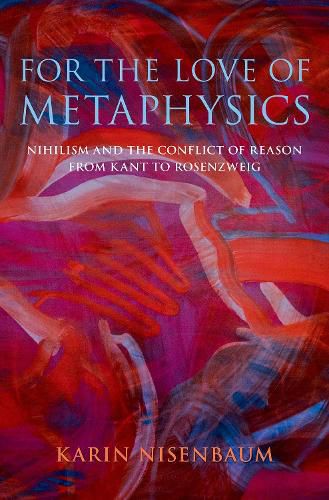Readings Newsletter
Become a Readings Member to make your shopping experience even easier.
Sign in or sign up for free!
You’re not far away from qualifying for FREE standard shipping within Australia
You’ve qualified for FREE standard shipping within Australia
The cart is loading…






In his Critique of Pure Reason, Kant argued that human reason is inherently conflicted, because it demands a form of unconditioned knowledge which is unattainable; his solution to this conflict of reason relies on the idea that reason’s quest for the unconditioned can only be realized practically. Karin Nisenbaum recommends viewing this conflict of reason, and Kant’s solution to this conflict, as the central problem shaping the contours of post-Kantian German Idealism. She contends that the rise and fall of German Idealism is to be told as a story about the different interpretations, appropriations, and radicalization of Kant’s prioritizing of the practical. The first part of the book explains why Kant’s critics and followers came to understand the aim of Kant’s critical philosophy in light of the conflict of reason. According to Nisenbaum, F. H. Jacobi and Salomon Maimon set the stage for the reception of Kant’s critical philosophy by conceiving its aim in terms of meeting reason’s demand for unconditioned knowledge, and by understanding the conflict of reason as a conflict between thinking and acting, or knowing and willing. The manner in which the post-Kantian German Idealists radicalized Kant’s prioritizing of the practical is the central topic of the second part of the book, which focuses on works by J.G. Fichte and F.W.J. Schelling. The third part clarifies why, in order to solve the conflict of reason, Schelling and Rosenzweig developed the view that human experience is grounded in three irreducible elements–God, the natural world, and human beings–which relate in three temporal dimensions: Creation, Revelation, and Redemption.
$9.00 standard shipping within Australia
FREE standard shipping within Australia for orders over $100.00
Express & International shipping calculated at checkout
In his Critique of Pure Reason, Kant argued that human reason is inherently conflicted, because it demands a form of unconditioned knowledge which is unattainable; his solution to this conflict of reason relies on the idea that reason’s quest for the unconditioned can only be realized practically. Karin Nisenbaum recommends viewing this conflict of reason, and Kant’s solution to this conflict, as the central problem shaping the contours of post-Kantian German Idealism. She contends that the rise and fall of German Idealism is to be told as a story about the different interpretations, appropriations, and radicalization of Kant’s prioritizing of the practical. The first part of the book explains why Kant’s critics and followers came to understand the aim of Kant’s critical philosophy in light of the conflict of reason. According to Nisenbaum, F. H. Jacobi and Salomon Maimon set the stage for the reception of Kant’s critical philosophy by conceiving its aim in terms of meeting reason’s demand for unconditioned knowledge, and by understanding the conflict of reason as a conflict between thinking and acting, or knowing and willing. The manner in which the post-Kantian German Idealists radicalized Kant’s prioritizing of the practical is the central topic of the second part of the book, which focuses on works by J.G. Fichte and F.W.J. Schelling. The third part clarifies why, in order to solve the conflict of reason, Schelling and Rosenzweig developed the view that human experience is grounded in three irreducible elements–God, the natural world, and human beings–which relate in three temporal dimensions: Creation, Revelation, and Redemption.